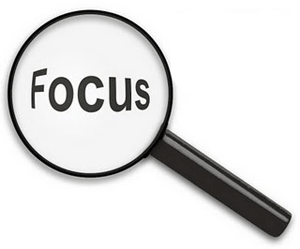Attention As A Social Media Literacy
If you were the only person on earth who knew how to use a fishing rod, you would be tremendously empowered. If you were the only person on earth who knew how to read and write, you would be frustrated and empowered only in tiny ways, like writing notes to yourself. When it comes to social media, knowing how to post a video or download a podcast—technology-centric encoding and decoding skills—is not enough. Access to many media empowers only those who know how to use them. We need to go beyond skills and technologies. We need to think in terms of literacies. And we need to expand our thinking of digital skills or information literacies to include social media literacies.So begins an article in the latest EDUCAUSE Review by Howard Rheingold.
 Most of know that Facebook, Twitter, blogs, and wikis allow us to socialize, organize, and waste time. For many educators, the jury is still out on the learning aspects of social media. Companies have certainly latched onto the commercial aspects of social media. They are working hard at engagement.
Most of know that Facebook, Twitter, blogs, and wikis allow us to socialize, organize, and waste time. For many educators, the jury is still out on the learning aspects of social media. Companies have certainly latched onto the commercial aspects of social media. They are working hard at engagement. Rheingold looks at the technical skills and literacies that he believes are needed to use social media: encoding, decoding, and community and 5 social media literacies: attention, participation,collaboration, network awareness, and critical consumption.
What most interests me in this article is first that attention is not only the key link to all the other literacies, but the idea of attention as a social media literacy.
I have long been a proponent of actually teaching listening and other attention skills. What Rheingold calls the "mindful deployment of your attention online" seems to me to be something that many educators have already given up on teaching.
Attention is also important in the classroom. This came home to me five years ago when I started teaching and saw what most teachers in the world, at least at the college level, see these days: students who are staring down, looking at their computers, not making eye contact with the teacher.Multitasking, hyper attention, "continuous partial attention" and attention-splitting are all terms that are used in a positive way in our very hurried society and classrooms for attention that others might describe as simply "unfocused".
Just as the print technologies and literacies shaped the Enlightenment, the social media technologies and literacies will shape the cognitive, social, and cultural environments of the 21st century. As Jenkins and his colleagues have emphasized, education that acknowledges the full impact of networked publics and digital media must recognize a whole new way of looking at learning and teaching. This is not just another set of skills to be added to the curriculum. Assuming a world in which the welfare of the young people and the economic health of a society and the political health of a democracy are the true goals of education, I believe modern societies need to assess and evaluate what works and what doesn't in terms of engaging students in learning.
Read the article...
Comments
No comments